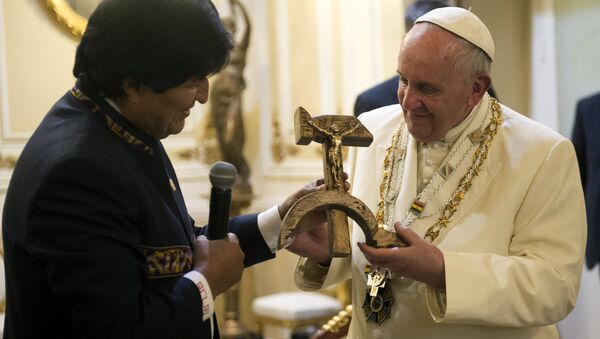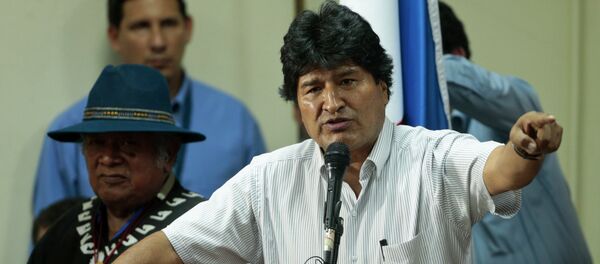Responding to the controversy aroused by the gift, Bolivia's Communications Minister Marianela Paco said the symbol was not intended as a political gesture, but to pay tribute to the Pope's advocacy on behalf of the poor.
"It was really from great affection, a work designed by the very hands of Luis Espinal," said Paco.
The Catholic News Agency noted on Thursday that the carving is actually a reproduction of another carved in the 1970s by the Spanish Jesuit, journalist and human rights activist Luis Espinal Camps, who was murdered by paramilitaries in 1980 during the brief dictatorship of Luis Garcia Meza.
"Do we realize that something is wrong in a world where there are so many farm workers without land, so many families without a home, so many laborers without rights, so many persons whose dignity is not respected?"
The Pope told the gathering in Santa Cruz on Wednesday, addressing issues of poverty, social marginalization and environmental destruction.
"Do we realize that that system has imposed the mentality of profit at any price, with no concern for social exclusion or the destruction of nature?"
Evo Morales has pursued a secular political agenda since taking office in 2006, when he ordered the Bible and cross to be removed from the presidential palace, which he regarded as symbols of colonial Spanish oppression. In 2009 following a referendum, the Bolivian constitution was changed to redefine Bolivia as a secular, rather than a Catholic state.
However, Morales has visited Pope Francis twice in Rome, and praised the Pope's support for the poor and marginalized groups.
The Pope arrived in Ecuador on Sunday to begin his nine-day tour of Latin America, before traveling to Bolivia and then Paraguay. This visit is the Argentine pontiff's second to Latin America since he became Pope, having visited Brazil in 2013.




